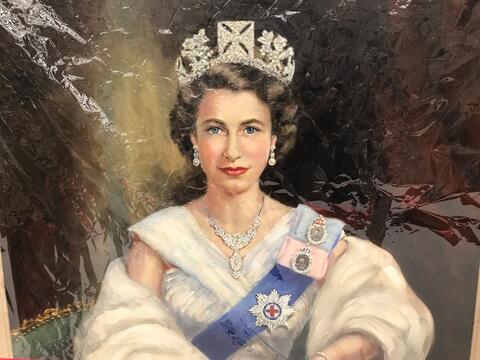HUMS 066, The Crown

Course Description:
How does The Crown help or hinder our understanding of British history? What problems are posed by a television show about actual events and people, some still living? What and who gets left out by The Crown?
The Crown sets out to trace the story not simply of the royal family but of postwar Britain itself. We’ll explore how the show deals or fails to deal with social change, imperial decay, cultural diversity, and political conflict. We’ll read constitutional analysis of the British monarchy; historical accounts of the evolution of royal ceremony; anti-monarchical essays; fiction that imagines the inner life of Queen Elizabeth. We’ll look at newspaper and magazine coverage of moments depicted in the series; view documentary footage; and, towards the end of the semester, watch two other films about the royal family.
The Crown has a global audience. What does the show itself—and the “royal industry,” more generally—tell us about Britain’s place in history and in the world? What does it tell us about the perils and pitfalls of adapting history for the screen?
Led by:
 |
Professor Stuart SemmelStuart Semmel teaches courses on modern British history, British imperial history, global history, and historical consciousness. He is also the Associate Head of Pauli Murray College.
He received his A.B. and Ph.D. from Harvard University. His book Napoleon and the British (Yale, 2004), shortlisted for the Longman/History Today Book of the Year prize, considers how Napoleon Bonaparte was used in British political argument and political culture. His publications include articles on tourism and radical politics. His current book project examines an early nineteenth-century British woman’s career as a freelance propagandist.
Before coming to Yale, Semmel was a tenured Associate Professor at the University of Delaware. He has also taught at Harvard, the University of Pennsylvania, American University, Peking University, and Yale-NUS College. He has been a fellow at the National Humanities Center and the Penn Humanities Forum. His courses include “Nineteenth-Century Britain,” “Britain’s Empire,” “The World Circa 1800,” and “British Identity since 1800” (graduate seminar). He also teaches classes on various aspects of “historical consciousness”: “Thinking About History” (a first-year seminar), “Screening the Past” (in the Humanities program), and “Nineteenth-Century Historical Narratives” (in Humanities, with Professor Stefanie Markovits). He also teaches “Historical and Political Thought” (from Herodotus to Arendt) in the Directed Studies program.
|